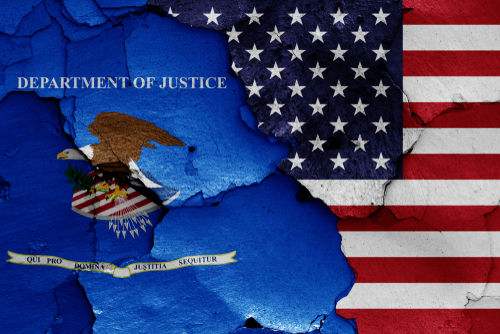Illinois’ refusal to hand over unredacted voter data to the Trump administration’s DOJ has ignited a constitutional showdown over privacy, election integrity, and federal overreach.
Illinois Defies DOJ Demand, Citing State Law and Privacy
On September 2, 2025, the Illinois State Board of Elections (ISBE) officially refused to provide the U.S. Department of Justice with its complete, unredacted statewide voter registration database. ISBE general counsel Marni Malowitz cited explicit state privacy laws and voiced deep concern about exposing Illinois residents to potential data breaches, emphasizing that “data breaches and hacking are unfortunately common, and the disclosure of sensitive information contrary to state law would expose our residents to undue risk.” The refusal followed a months-long standoff that began when the DOJ, acting under President Trump’s direction, requested the data in late July, arguing that it was necessary to assess compliance with federal voter roll maintenance laws.
Illinois officials provided a redacted version of the database in August, as state law allows, but the DOJ quickly rejected it, reiterating its demand for all personal identifiers. The department set a September 1 deadline, which Illinois let pass without capitulation. This escalation has left both sides at a stalemate and the broader public watching closely, as concerns mount about both voter privacy and the federal government’s reach into state affairs.
Federal Demands Versus State Sovereignty: Legal and Political Stakes
The Trump administration’s push for unredacted voter data is rooted in federal statutes like the National Voter Registration Act (NVRA) and the Help America Vote Act (HAVA), which require states to maintain accurate voter rolls. However, neither law explicitly mandates that states must share full, sensitive personal information with federal authorities. Legal experts and election law scholars note that the DOJ’s broad request is highly unusual and not clearly supported by federal law. Illinois’ resistance is not unprecedented; similar requests in 2017 were widely rejected by states across the political spectrum.
At the heart of the dispute is the question of federal supremacy versus state autonomy. The Trump administration argues that robust oversight is essential to combat voter fraud and ensure election integrity—a top priority for many conservatives frustrated by years of perceived lax enforcement and inconsistent standards. Illinois, a Democratic stronghold led by Governor JB Pritzker, frames its resistance as a defense of both state law and the privacy of its voters, reflecting a broader pattern of political antagonism between the state and the current administration.
Broader Implications: Privacy, Precedent, and Public Trust
This standoff carries significant implications beyond the immediate parties. For Illinois voters, the refusal may shield them from unnecessary exposure of sensitive data, reducing risks of identity theft and erosion of trust in the voting system. For federal authorities and supporters of stronger election oversight, Illinois’ defiance raises concerns about the ability to enforce uniform election standards and prevent fraud—key issues for those who believe that previous administrations permitted vulnerabilities to persist. The outcome of this dispute could set a precedent for how much power the federal government can wield over state-controlled election data in the future.
Legal experts anticipate that the conflict may ultimately be settled in the courts, potentially leading to a landmark decision clarifying the boundaries between federal oversight and state privacy protections. Meanwhile, the standoff has energized both advocates of strong state sovereignty and those who prioritize aggressive federal action to secure elections—deepening the national debate over how best to balance these competing values.
Illinois state officials told the Department of Justice they won’t be turning over voter data, despite the Trump administration’s request. https://t.co/0Dn61A7eb9
— The Daily Signal (@DailySignal) September 5, 2025
With the deadline passed and no resolution in sight, both sides are digging in. The Trump administration has not ruled out legal action, and Illinois officials remain steadfast in their commitment to privacy and state law. For conservatives concerned about federal overreach, erosion of constitutional rights, and the sanctity of the ballot box, this situation highlights the urgent need for vigilance and principled leadership as the nation heads into a new era of election administration battles.
Sources:
Illinois elections board refuses to give DOJ sensitive voter data
DOJ demands Illinois voter personal information by Sept. 1
Trump-Illinois Staredown Intensifies As State Denies Voter Data Request
DOJ demands Illinois voter personal information by Sept. 1
Department of Justice Demands Sensitive Illinois Voter Registration Data After State Responds

